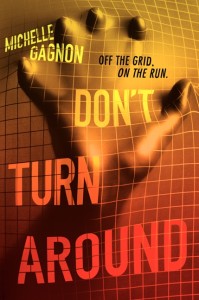[UPDATE: I don’t know what happened with my post today. The text came out white on Google Reader I was told. I tried to fix it and stuff happened. So here it is again]
We all have egos. We all enjoy being praised by others, being recognized, even singled out. We sometimes talk of the “healthy ego.” The drive to be good at something, and to have achievement recognized and rewarded, is a sign of a healthy ego.
But when those desires start to take over, the ego becomes unhealthy. Surveys of today’s young peopleconsistently show that their overarching goal is not to be a good citizen, have a family, or contribute something lasting to society. It’s to become rich and famous.
Monthly Archives: September 2012
Books on the Installment Plan
Reader Friday: How far do you develop your fictional world?
Our friend Basil Sands posed a question for today: How deeply do you develop the characters in your fictional world, and do you write about them beyond the primary works?
“I just put up a novella and a couple shorts that flesh out some of my main characters from the past four books with details that had been alluded to in those books,” Basil writes. “Do you guys & gals do stuff like that? And when you do, do you keep it to yourself or put it up for the world to see?”
Tell us in the Comments!
Do Giveaways Work?
Figment.com has just announced a contest to celebrate the release of my YA debut DON’T TURN AROUND. In keeping with the theme of the book, they’re asking for a story about teen rebels with a cause, in 1,200 words or less. The winner will receive a 13 inch MacBook Pro (a computer that features prominently in the storyline, since it’s sort of a “Girl with the Dragon Tattoo for teens”), and a signed copy of the book.
I’m really excited about this (especially since, for a refreshing change, this time I won’t be the one paying for the grand prize!) However, I wonder…do giveaways really lead to more copies sold?
For my second book, BONEYARD, I held a Kindle contest. Anyone who signed up for my newsletter got their name thrown into the hat (mind you, this was for the Kindle 1, which as a brand spanking new device retailed for $450).
That was, to date, my bestselling novel.
But I was hesitant about repeating that particular contest-after all, signing up for my newsletter didn’t necessarily translate to purchasing the book; and many might simply unsubscribe as soon as the contest ended. (For the record, I didn’t experience an unusually high dip in subscribers in the aftermath). Plus, it was a lot of money to spend without a quantifiable return.
So for my third thriller, THE GATEKEEPER, I decided to take it up a notch. I offered a MacBook (paid for out of my own advance) to anyone who could answer two easy questions about the book.
I received a decent number of entries; certainly not as many as with the previous contest, but a respectable amount. To enter, a reader needed to provide the names of two specific characters, in response to a fairly simple question for anyone who had read the book.
But some people literally sent a full roster of every character in every single one of my novels. One woman emailed me directly twenty times over the course of a day, listing two characters at a time (a few of whom weren’t even from any of my books), asking repeatedly, “These two names? What about these two?”
When I gently pointed out that randomly throwing names at me wasn’t really keeping in the spirit of the contest, she got huffy and fired off a nasty email about how spoiled authors were, and how this was the only way she could get a new computer. Plus, she wasn’t a big reader in general, and found it unfair that she be asked to read something in order to enter a giveaway.
*Sigh. The entire experience ended up leaving a bad taste in my mouth (not to mention a dent in my wallet). So for my fourth book, I skipped contests entirely.
I had no idea that Figment was going to be running this contest until it posted; I love the idea behind it, though. Especially since Figment serves as a virtual writing community. And I’m terribly flattered that they’re offering such an amazing, generous prize.
But will it translate into sales? Hard to say. I know the old 50% marketing adage (half of what you do will work, but chances are you’ll never know which half). But it’s a source of perpetual frustration for every author–where do you concentrate your marketing time and money, especially now that there’s such a huge array of options? Hemingway never had to deal with Twitter (although I suspect he would have been fantastic at it, with his knack for sparse prose).
So what do you think? Has a giveaway ever persuaded you to purchase a novel you never would have picked up otherwise?
The Good, Bad and Ugly reviews
By Joe Moore
We’ve been talking quite a bit this week about online reviews, especially those on Amazon, B&N and other sites, and the fact that some authors have admitted to paying for glowing reviews in order to boost sales, so-called sock-puppet reviews. I think we all agree that this is a truly deceitful practice and should be condemned. Many well-know authors are speaking out on this. But I find it more that dishonest, it’s just plain sad. If a writer has so little faith in his or her work that a viable option is to purchase 5-star reviews, that’s sad. Our work should be accepted or rejected on its own merit—it should stand on its own.
No book has ever been declared great by everyone who read it. There will always be those who dislike a book for more reasons that we can count. As a matter of fact, it never ceases to amaze me the vast span of reactions to books including my own and those of my friends. Pick any bestseller and you’ll find someone who loves it and someone else who doesn’t. And often both are willing to say so, in the strongest of terms. There are more than enough good, bad and ugly reviews to go around.
So I thought that instead of talking about online reviews, I’d share some of mine with you. I’ve listed 5 of my thrillers (all co-written with Lynn Sholes) and a sample of the good, the bad and the ugly online reviews we’ve received over the years.
Disclaimer: I have no idea who wrote and posted these nor have I ever paid for a review. These samples were gathered from Amazon and Goodreads.
THE PHOENIX APOSTLES
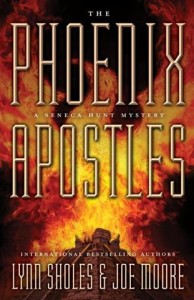 The Good: “I’ll read anything these two authors write. I have to be careful not to put a spoiler in this review, but there is one scene that knocked me off the sofa. I don’t often squeal during a movie scene when the bad guy comes out from around the dark corner, but there was a scene in this book that made me jump and I almost flung the book across the room. I won’t tell which one it was because I don’t want to ruin it for any other reader.”
The Good: “I’ll read anything these two authors write. I have to be careful not to put a spoiler in this review, but there is one scene that knocked me off the sofa. I don’t often squeal during a movie scene when the bad guy comes out from around the dark corner, but there was a scene in this book that made me jump and I almost flung the book across the room. I won’t tell which one it was because I don’t want to ruin it for any other reader.”
The Bad: “I just couldn’t figure out if this book was for "young adult" reading or "teen reading" or adults or Christian reading or even anti-religion.”
The Ugly: “The writing is deplorable, the style so bland I had to read a page twice to make sure it was indeed that bad!”
THE GRAIL CONSPIRACY
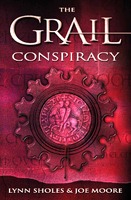 The Good: “What I want to know is when is this going to come out as a movie? It has to be one of the most exciting thrillers I have ever read. I was hooked from the first page on when Cotten Stone (the main character) stumbles onto the dig site of the Crusader’s tomb.”
The Good: “What I want to know is when is this going to come out as a movie? It has to be one of the most exciting thrillers I have ever read. I was hooked from the first page on when Cotten Stone (the main character) stumbles onto the dig site of the Crusader’s tomb.”
The Bad: “This started with interesting characters and action, but the quality of writing was fair and the story went downhill. Would not recommend even as a beach book.”
The Ugly: “The book was simply boring and poorly written. The characters had no depth. The plot took forever to go anywhere.”
THE LAST SECRET
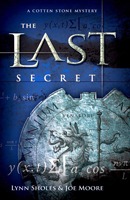 The Good: “This was one of those books you cannot put down. Basically I was on the edge of my seat so to speak whilst reading it. Exciting, mysterious. Well written, keeps you guessing. Loved it… Would recommend as great reading!”
The Good: “This was one of those books you cannot put down. Basically I was on the edge of my seat so to speak whilst reading it. Exciting, mysterious. Well written, keeps you guessing. Loved it… Would recommend as great reading!”
The Bad: “It takes more than an exotic location and some perceived struggle between good and evil to make a good story.”
The Ugly: “Religious hype … I was totally disappointed.”
THE HADES PROJECT
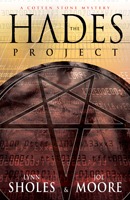 The Good: “Lynn Sholes & Joe Moore have given us an exciting, fast moving, and scary novel. The proverbial "page turner".
The Good: “Lynn Sholes & Joe Moore have given us an exciting, fast moving, and scary novel. The proverbial "page turner".
The Bad: “I had a hard time liking the main character, Cotten Stone. She was a bit too whiny for my taste.”
The Ugly: “A waste of my time.”
THE 731 LEGACY
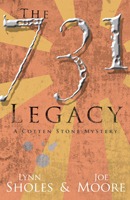 The Good: “Lynn Sholes and Joe Moore do a masterful job of telling an engaging story that involves religious prophecy, global disaster, mass plague and an unbelievable revenge plot against the U.S. and its allies by a long-forgotten enemy.”
The Good: “Lynn Sholes and Joe Moore do a masterful job of telling an engaging story that involves religious prophecy, global disaster, mass plague and an unbelievable revenge plot against the U.S. and its allies by a long-forgotten enemy.”
The Bad: “It was so predictable.”
The Ugly: “This book was a big ‘I don’t care what happens to you, no matter how sad it may be’ kinda story for me. The first time I read a Sholes & Moore book, and definitely the last time.”
So now that you’ve seen a few of my good, bad and ugly reviews, how about you guys? Got the guts to share the best and worst you’ve received? What about those of you that have posted online reviews? Without revealing the book title or author, want to share your good, bad and ugly comments?
Survey: How did you hear about the last book you purchased?
Over the past couple of days we’ve been having some good discussions about paid reviews on Amazon, and the credibility of online reviews. Most people said that Amazon reviews don’t affect their purchasing decisions. So I started wondering: Nowadays, how do people hear about the books they purchase? Is it mostly by word of mouth, blogs, reviews? Or some other way?
I thought I’d start an unscientific survey. Tell us the title of the last book you purchased, and describe how you heard about it. (I know there’s got to be a way to insert an actual poll in this post, but I have no idea how to do it. So tell us in the comments!) Has the way you hear about new books changed much over the past five years?
My most recent book purchase was A WORLD ON FIRE: Britain’s Crucial Role in the American Civil War, by Amanda Foreman. I heard about it on BOOK TV (It’s one of my favorite go-to sources for reviews and author interviews. I often grab my Kindle and buy something immediately after watching a book discussion there).
What was yours?
Another tolling bell? Reviews in the age of Amazon
Jim’s timely post yesterday on the paying for reviews scandal involving the self-published ‘John Locke’ got me thinking about the changing nature and validity of ‘reviews’ in the cyber-age.
We’ve had flame-wars, hate campaigns as well ‘friend’-reviewing and, more recently, the purchasing of favorable Amazon reviews all in the name of attaining that most coveted of prizes – the title of ‘bestselling author’. Given all the hoopla, I was interested to see The Guardian’s book blog posting question ‘are Amazon reader reviews killing off the critic?‘ In this blog post they ask whether ongoing issues with Amazon reviews have killed off the book review or whether they have actually made traditional, editor-commissioned book reviews more important than ever?
I have been mulling over same thing though wondering whether the answer to this question is even relevant. It’s clear that most people buy books based on the recommendations of friends and from ‘word of mouth’ rather than Amazon reviews – though in this day and age, word-of-mouth opinions is often generated by online hype which (as the John Locke case illustrates) are easily open to manipulation.
While I like Jim’s solution to open up more books for readers to look at online – so they can read sample chapters for themselves and decide – I still wonder about the increasing irrelevance of reviews.
At the moment I view most Amazon reviews with skepticism – as more-often than not the one-star review sounds like a rant and the five-star review sounds like pandering. However, I also find it’s getting increasingly harder to distinguish promotion from objective reviews online at all, and it’s pretty clear that publishers and authors alike are desperate for anything that will set them apart from the background ‘noise’ of the Internet. This means for me, at least, I take most online reviews with a grain of salt. I do, however, continue to view reviews found in newspapers, magazines and journals with some degree of confidence. Not that I will agree with the reviewer by any means – but I do regard what is written as an actual critical appraisal rather than an exercise in PR.
So what do you think? Have online reader review sites basically killed off the traditional book critic? Do you think independent book reviews (in newspapers or other media formats) still resonate with readers or are they of only marginal importance?
The Paid Reviews Scandal and What it Means for the Future
James Scott Bell
@jamesscottbell


